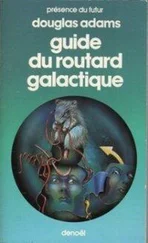Douglas Adams - The Salmon of Doubt
Здесь есть возможность читать онлайн «Douglas Adams - The Salmon of Doubt» весь текст электронной книги совершенно бесплатно (целиком полную версию без сокращений). В некоторых случаях можно слушать аудио, скачать через торрент в формате fb2 и присутствует краткое содержание. Жанр: Фантастика и фэнтези, на английском языке. Описание произведения, (предисловие) а так же отзывы посетителей доступны на портале библиотеки ЛибКат.
- Название:The Salmon of Doubt
- Автор:
- Жанр:
- Год:неизвестен
- ISBN:нет данных
- Рейтинг книги:4 / 5. Голосов: 1
-
Избранное:Добавить в избранное
- Отзывы:
-
Ваша оценка:
- 80
- 1
- 2
- 3
- 4
- 5
The Salmon of Doubt: краткое содержание, описание и аннотация
Предлагаем к чтению аннотацию, описание, краткое содержание или предисловие (зависит от того, что написал сам автор книги «The Salmon of Doubt»). Если вы не нашли необходимую информацию о книге — напишите в комментариях, мы постараемся отыскать её.
The Salmon of Doubt — читать онлайн бесплатно полную книгу (весь текст) целиком
Ниже представлен текст книги, разбитый по страницам. Система сохранения места последней прочитанной страницы, позволяет с удобством читать онлайн бесплатно книгу «The Salmon of Doubt», без необходимости каждый раз заново искать на чём Вы остановились. Поставьте закладку, и сможете в любой момент перейти на страницу, на которой закончили чтение.
Интервал:
Закладка:
Another .3,253.29. Last Friday. Incredible. Inexplicable. But there. There was also something else odd, though. It took him a moment or two to spot it, because he was keeping half an eye expertly trained on his subject, who was buying coffee and a doughnut and paying for it out of a fan of twenties.
The last entry on Dirk’s statement was for a cash withdrawal on his debit card:
.500. Yesterday. The statement had obviously been sent out at close of business yesterday, and it had the day’s transactions up to date. That was all very excellent and efficient and a fine testimony to the efficacy of modern computer technology, of course, but the fact was that Dirk hadn’t withdrawn .500 yesterday, or any other day for that matter. His card must have been stolen. Hell’s bells! He fished anxiously for his wallet.
No. His cards were there. Safe.
He thought about it. He couldn’t envisage any way in which a fraudster could make an actual cash withdrawal without the actual card. A horrible clammy thought suddenly grabbed his stomach. These were his own bank statements he’d been getting, weren’t they? He checked in alarm. Yes. His name, his address, his account number. He had double-checked the other ones last night, several times. Definitely his statements. They just didn’t seem to be his financial transactions, that was all.
Time to concentrate on the job in hand. He looked up. His quarry was sitting two tables away, patiently munching his bun and staring into the middle distance. After a moment or two he stood up, brushed some crumbs off his leather jacket, turned, and walked to the door. He paused for a moment, as if considering which way to go, and then set off the way he had been going, strolling casually. Dirk slipped his mail into his pocket and quietly followed.
He had picked a good subject, he soon realised. The man’s ginger hair shone like a beacon in the spring sunshine, so whenever he was briefly swallowed up in a crowd, it would only be a matter of seconds before Dirk would catch sight of him again, meandering idly along the street.
Dirk wondered what he did for a living. Not a lot, it seemed—or at least, not a lot today. A pleasant walk through Holborn and into the West End. Loafing around in a couple of bookshops for half an hour
(Dirk made a note of the titles his quarry browsed through), stopping for (another) coffee in an Italian cafe to glance through a copy of The Stage (which probably explained why he had so much free time for loafing around in bookshops and Italian cafes), and then a long, leisurely amble up through Regent’s Park and then across Camden and back toward Islington—Dirk began to think that this business of following people was really a rather congenial one. Fresh air, exercise—he was feeling in such tremendously good spirits by the end of the day that as soon he strode back in through his front door—or rather, his front polythene flap—it was instantly clear to him that the dog’s name was Kierkegaard.
Chapter 5
SOLUTIONS NEARLY ALWAYS come from the direction you least expect, which means there’s no point trying to look in that direction because it won’t be coming from there.
This was an observation that Dirk mentioned a lot to people, and he mentioned it again to Kate that evening when he phoned her.
“Wait a minute, wait a minute, wait a minute,” she said, trying to wedge a phrase into his monologue and wiggle it about. “Are you telling me ...” “I’m telling you that the late husband of the woman who’s forgotten her dog’s name was a biographer.”
“Wait a minute, wait a minute, wait a minute,” she said, trying to wedge a phrase into his monologue and wiggle it about. “Are you telling me ...” “I’m telling you that the late husband of the woman who’s forgotten her dog’s name was a biographer.”
”
“And I expect you know that biographers often name their pets after their subjects.”
“No. I ...”
“It’s so they’ve got someone to shout at when they get fed up. You spend hours wading through someone banging on about the teleological suspension of the ethical or whatever and sometimes you just need to be able to shout ‘Oh, shut up, Kierkegaard, for Christ’s sake.’ Hence the dog.”
“Dir ...”
“Some biographers use a small wooden ornament or a potted plant, but most prefer something you can get a good yap out of. Feedback, you see. Speaking of which, do I sense that you have an observation to make?” “Dirk, are you telling me that you spent all day following a total stranger?” “Absolutely. And I intend to do the same tomorrow. I shall be skulking near his front door bright and early. Well, bright at least. No point in being early. He’s an actor.”
“You could get locked up for that!”
“Occupational hazard. Kate, I’m being paid $5,000 a week. You have to be prepared to ...”
“But not to follow a total stranger!”
“Whoever is employing me knows my methods. I am applying them.”
“You don’t know anything about the person who’s employing you.”
“On the contrary, I know a great deal.”
“All right, what’s his name?”
“Frank.”
“Frank what?”
“No idea. Look, I don’t know that his name is Frank. His—or her—name has nothing to do with it. The point is that they have a problem. The problem is serious, or they wouldn’t be paying me a substantial amount of money to solve it. And the problem is ineffable or they’d tell me what it is. Whoever it is knows who I am, where I am, and precisely how best to reach me.”
“Or maybe the bank’s just made an error. Hard to believe, I know, but ...” “Kate, you think I’m talking nonsense, but I’m not. Listen. In the past, people would stare into the fire for hours when they wanted to think. Or stare at the sea. The endless dancing shapes and patterns would reach far deeper into our minds than we could manage by reason and logic. You see, logic can only proceed from the premises and assumptions we already make, so we just drive round and round in little circles like little clockwork cars. We need dancing shapes to lift us and carry us, but they’re harder to find these days.
You can’t stare into a radiator. You can’t stare into the sea. Well, you can, but it’s covered with plastic bottles and used condoms, so you just sit there getting cross. All we have to stare into is the white noise.
The stuff we sometimes call information, but which is really just a babble rising in the air.” “But without logic ...”
“Ah. So that’s what you’re doing.”
“Yes. Well, it’s solved one problem already. I’ve no idea how long it would have taken me to work out that the wretched dog was called Kierkegaard. It was only by the happiest of chances that my surveillance subject happened to pick out a biography of Kierkegaard, which I then discovered, when I checked it out myself, had been written by the man who subsequently threw himself off a crane with elastic round his legs.”
“But the two cases had nothing to do with each other.”
“Have I mentioned that I believe in the fundamental connectedness of all things?
I think I have.”
“Yes.”
“Which is why I must now go and investigate some of the other books he was interested in before getting myself ready for tomorrow’s expedition.”
“...”
“I can hear you shaking your head in sorrow and bewilderment. Don’t worry.
Everything is getting nicely out of control.”
“If you say so, Dirk. Oh, by the way, what does ‘ineffable’ actually mean?”
“I don’t know,” said Dirk tersely, “but I intend to find out.”
Chapter 6
THE FOLLOWING MORNING the weather was so foul it hardly deserved the name, and Dirk decided to call it Stanley instead.
Читать дальшеИнтервал:
Закладка:
Похожие книги на «The Salmon of Doubt»
Представляем Вашему вниманию похожие книги на «The Salmon of Doubt» списком для выбора. Мы отобрали схожую по названию и смыслу литературу в надежде предоставить читателям больше вариантов отыскать новые, интересные, ещё непрочитанные произведения.
Обсуждение, отзывы о книге «The Salmon of Doubt» и просто собственные мнения читателей. Оставьте ваши комментарии, напишите, что Вы думаете о произведении, его смысле или главных героях. Укажите что конкретно понравилось, а что нет, и почему Вы так считаете.







